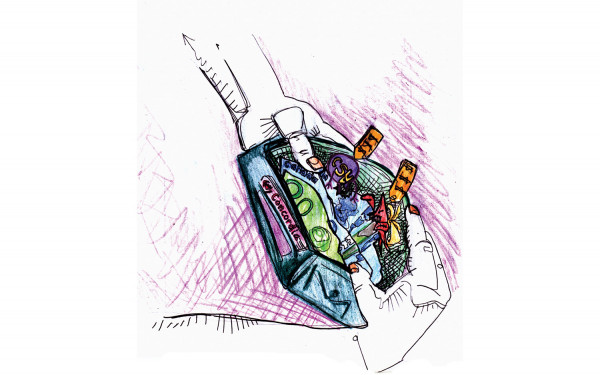Editorial: Hey CSU, Let Them Through
For the first student group to apply for a fee levy under this year’s student union—led by a team whose electoral platform was largely focused on the importance of fee-levy groups—Concordia’s Model United Nations club is having a harder time getting to the point of putting its fee-levy request to a vote by students than you’d expect.
The crux of the issue, from the Concordia Student Union’s perspective, seems to be in the wording of CONMUN’s constitution. Their policy committee claims the constitution was too poorly written to hold up not legally, but for the group to “function.”
The policy committee spent an unusually long time—two hours—pouring over the potential fee-levy group’s constitution in a meeting, finding multiple issues despite the fact that it had been drafted with the help of lawyer Patrice Blais, who teaches management classes at Concordia and specializes in labour law and not-for-profits. Blais has helped other Concordia fee-levy groups write their constitutions. (Some articles in the constitution that the committee took issue with are nearly identical to articles in The Link’s own constitution—and we have yet to encounter any problems with them.)
Following its meeting with the committee, CONMUN produced a document rebutting the committee’s criticisms, but CSU President Benjamin Prunty said there were “discrepancies” between what had been said at the meeting and what was printed in the document.
And yet, neither the policy committee nor the CSU said the constitution was illegal. Since there’s disagreement on whether the policy committee’s role should extend beyond simply confirming a constitution’s legality, it remains unclear why exactly the group’s constitution has been submitted to such scrutiny.
Arts and science councillor and member of the policy committee Lucinda Marshall-Kiparissis described the situation, saying the “unease” of the committee’s members must mean something, even if the main issue they cited was only that the constitution had “inconsistencies.”
“It is telling that all of us did not feel comfortable with this being a document that is a backbone for an organization that gets voted on for student money,” she said, admitting she wasn’t at the meeting between the policy committee and CONMUN.
Most present at the meeting seemed to agree.
One of the exceptions was Arts and Science Federation of Associations president Paul Jerajian, who questioned the timeline for reviewing CONMUN’s constitution, noting that it could prevent CONMUN from having a constitution prepared in time for the fall by-election, and mean a fee-levy question wouldn’t be included on the ballot.
If CONMUN qualifies to become a fee-levy group, the CSU must decide whether or not to hold a fall by-election with a referendum question that allows students to decide if the group should receive funding.
When Jerajian pressed council to vote in favour of requiring the policy committee to have its suggestions back to CONMUN in time for the by-elections, the reason behind the CSU’s reservations became clearer.
“We have quite a financial fiasco going on right now and we need to see what we can do with this,” Prunty said, adding that putting together a by-election would be “a lot of work.”
We feel that few solutions are being offered to CONMUN to help it pursue a fee levy that would make their group more accessible, with the focus instead being on the semantics of its constitution.
Regardless of whether the stagnation is intentional or not, a group that ran on a platform emphasizing the importance of community and fee-levy groups does not seem to be concerned with fostering the transition of a club such as CONMUN into an independent fee-levy group with a stable source of funding.
Though it’s important that the group’s constitution can stand legally before receiving student funding, it’s not the role of the CSU to dictate the details of the constitution itself—that is up to the group to decide.





WEB_600_375_90_s_c1.jpg)
_600_375_90_s_c1.jpg)
